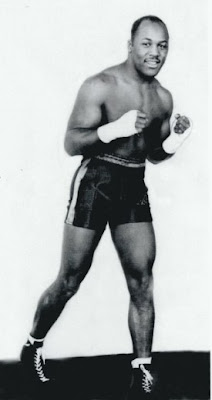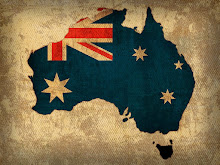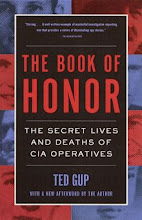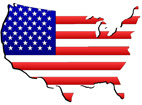The 555th - "Triple Nickel" - Parachute Infantry Regiment
The 555th Parachute Infantry Battalion was an all-Black Airborne unit in the United States Army during World War II.
The 555th did not serve overseas during World War II. One of the reasons for this was the issue of segregation; European theater commanders "simply had no use" for the Black jumpers. The Asian theater was a different matter. Members of the 555th hoped to get into the war against the Japanese. According to Sergeant Walter Morris; "It was a secret mission called Operation Firefly. We thought we were going overseas to General MacArthur's theater". It wasn't until they arrived in Oregon, in May 1945 that they learned they'd be fighting the Japanese on the fire line in the Western United States.
During the winter of 1944–45, the Japanese sent 9000 fire balloons toward the western coast of North America; after three days, each balloon dropped an incendiary bomb. It was believed 1000 succeeded in reaching the United States, and 300 were witnessed. In order to conceal the efficacy of these attacks, the mission of the 555th was kept secret. In addition to fires started by the enemy incendiary devices, the 555th fought numerous other forest fires. Stationed at Pendleton Field, Oregon (site of initial training for the Doolittle's raid on Japan) with a detachment in Chico, California, unit members courageously participated in dangerous fire-fighting missions throughout the Pacific Northwest during the summer and fall of 1945. The group engaged in over 1200 missions, earning the nickname "Smoke Jumpers" in addition to "Triple Nickles." The only fatality in the unit died while jumping on 6 August 1945.
Members of the battalion are briefed before takeoff from Fort Dix in 1947.
The 555th Parachute Infantry Battalion was nicknamed the "Triple Nickles" because of its numerical designation and the selection of 17 of the original 20-member "colored test platoon" from the 92nd Infantry (Buffalo) Division. Hence, the origin of the term Buffalo Nickles.
Three buffalo nickels joined in a triangle or pyramid is the identifying symbol of the 555th Parachute Infantry Regiment.
"Tiger" Ted Lowry - the only fighter to go the entire 10 rounds twice against future heavyweight champion Rocky Marciano, and who nearly handed Marciano the only loss of his career - served with the 555th during World War II.
Lowry suffered the indignity of riding in the back of a US military bus in which German prisoners were allowed to sit in front. He fought 144 professional bouts including several against eventual world champions and was knocked out just three times.
Respect:
Former members of the 555th Parachute Infantry Regiment "Smokejumpers" visiting the U. S. Forest Service in Washington, D. C., on March 26, 2010. L to R Sergeant Clarence H. Beavers, National Triple Nickles Association President Joe Murchison, Smokey the Bear, First Sergeant Walter Morris and Lt. Col Roger S. Walden. Photo: USDA Forest Service
Soon after returning to Camp Mackall in October 1945, the 555th Parachute Infantry Battalion was transferred to Fort Bragg, North Carolina, its home for the next two years. During this period the unit was attached to the elite 82d Airborne Division. When the battalion was inactivated on 15 December 1947, most of its personnel were reassigned to the division's organic 3d Battalion, 505th Parachute Infantry Regiment.
During my time in the Airborne, black paratroopers were sometimes referred to as "Smokejumpers" - a term which could be interpreted as disrespectful depending upon the tone, although I have heard black paratroopers proudly refer to themselves as "Smokejumpers".
Another use of the term was a white girl who went with blacks. "Debbie? Oh, you won't get anywhere with her; she's a Smokejumper." Needless to say, this is a term of derision- there is no doubt.
In the Army I served in there was no racism, thank God. This is not to say that racism and prejudice did not exist - indeed it did; both kinds (regular AND reverse). What I mean is, there was no segregation, racist policies or overt manifestation of racism. Prejudism is a problem that is always going to exist, anywhere and everywhere in every society on Earth - I don't care how enlightened you think you are. But in the Army I served in, we were all green - "Uncle Sam's Lean, Green, Fighting Machine" - and things always worked best when we overlooked the color thing and just got on with it; on and off duty.
In the Infantry squads and platoons I served in the 82d Airborne, and later on teams in Special Forces, skin color simply was not an issue. Sure, there were some racial standoffs, but this was the rare exception; not the rule. We worked together, fought together and went on R&R together. We even laughed openly about things like the "Smokejumper girl" phenomenon. Somehow, things always got worse whenever race became an issue.
- STORMBRINER SENDS
Saturday, January 14, 2012
Subscribe to:
Post Comments (Atom)


















































As a VietNam vet and later a career US Forest Service employee I always told the younger folks on my fire crews that wildland fire fighting is the closest thing you will see like actual combat as a civilian occupation. That goes triple for the smoke jumpers.
ReplyDeleteIt is good that there is a page like this that pays tribute to what the 555th PIR did. What I find problematic is your use of the term 'reverse racism'. Everyone can harbor racial prejudice to include people of color, but racism refers to a structural system that privileges one group and oppresses another to the privileged group's advantage. “Reverse racism” does not result in inferior schools and facilities, an economic gap, or a shortened life expectancy due to living in poverty.
ReplyDelete“…things always worked best when we overlooked the color thing and just got on with it; on and off duty.” So it sounds like the article is saying that things worked best when the reality of a whole group of people’s circumstances were just ignored. That sounds like people that claim to be colorblind when it comes to race and it’s bullshit.
Lastly, the idea that “we were all green” is a nice sentiment, but it is not something that is a reality even today. Racism, sexism, and cultural prejudice are things that have no place in the armed forces and we still have a long way to go.
My name is Derek Masuda. I served as an enlisted member of the United States Army for six years and deployed to Afghanistan in support of Operation Enduring Freedom in 2007.